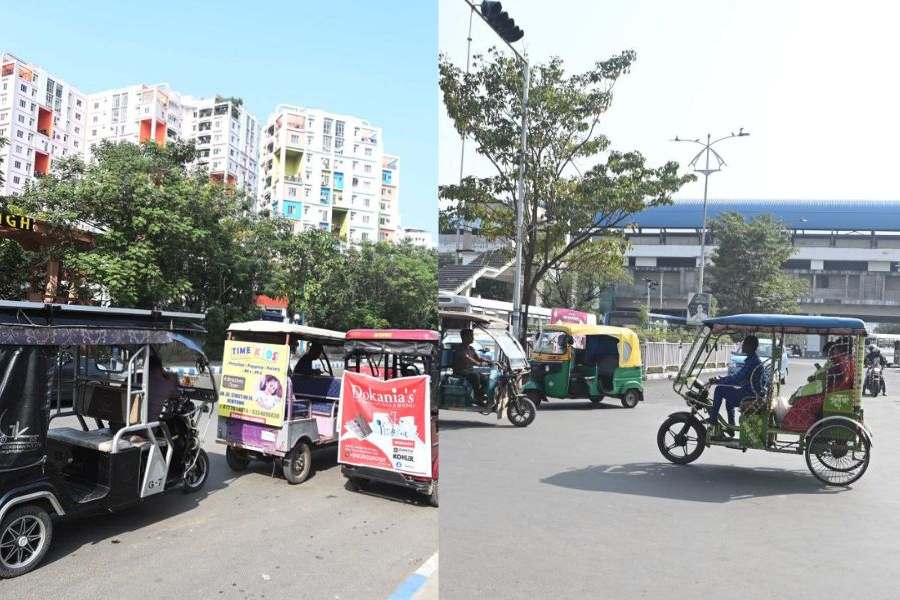Charging stations will be set up in New Town for the many battery-powered three-wheelers that provide crucial last-mile connectivity to residents and visitors.
These battery-powered vehicles connect wires with streetlight posts, electrical junction boxes and other streetside luminaries to charge their vehicles. This is illegal and poses a risk to pedestrians and others.
The charging stations will be set up by the New Town Kolkata Development Authority (NKDA). According to a senior official, people will also be able to charge electric scooters and bikes at these points.
“Not only three-wheelers, battery-operated two-wheelers will be able to charge for a fee calculated on an hourly basis,” said Debashis Sen, the NKDA chairman.
A senior NKDA official said, there were around 900 such battery-powered vehicles in New Town.
A sizeable section of these three-wheelers is unrecognised and does not meet basic safety standards.
Like in other parts of the city, these three-wheelers, commonly referred to as totos, are illegal because their prototypes haven’t been cleared by government institutes working on vehicle safety, such as the Central Institute of Road Transport in Pune or International Centre for Automotive Technology in Haryana.
According to an official, an authorised e-rickshaw has to have proper registration papers, licence plates, tax tokens and route permits. An authorised e-rickshaw has to be driven by a person who has a driving licence.
In places like New Town, the battery-operated vehicles draw their own rules — routes, fares and number of passengers per trip. It is not uncommon to see them driving on the wrong side of main roads or jumping red lights on any given day.
Asked why the New Town authorities were setting up infrastructure for vehicles that do not conform with safety guidelines and are largely unregulated, a senior NKDA official said that this was
being done to ensure that freak accidents like short circuits or pedestrians tripping over charging wires did not take place.
“There is a very serious threat of short circuits happening and people getting electrocuted or getting themselves injured if they trip and fall because of these wires. We are also trying to regulate this mode of transport,” said the official.
According to him, a series of meetings has been held both by NKDA as well as police with owners and operators of these vehicles and their union leaders. “We are trying to fix a route plan,” said the official.
